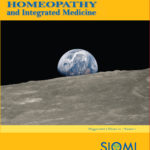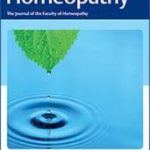Microbiota intestinale e immunità sistemica

di Gino Santini
Segretario Nazionale Siomi, Direttore ISMO, Roma
Mail: g.santini@siomi.it
Per leggere l’articolo completo in pdf >>> cliccare qui
Bibliografia
- Who are we? Nature 453, 563–563 (2008).
- Sender, R., Fuchs, S. & Milo, R. Revised Estimates for the Number of Human and Bacteria Cells in the Body. Plos Biol 14, e1002533 (2016).
- Liang, S., Wu, X. & Jin, F. Gut-Brain Psychology: Rethinking Psychology From the Microbiota–Gut–Brain Axis. Frontiers Integr Neurosci 12, 33 (2018).
- Rankin, L. C. & Artis, D. Beyond Host Defense: Emerging Functions of the Immune System in Regulating Complex Tissue Physiology. Cell 173, 554–567 (2018).
- Sommer, F. & Bäckhed, F. The gut microbiota — masters of host development and physiology. Nat Rev Microbiol 11, 227–238 (2013).
- Kinashi, Y. & Hase, K. Partners in Leaky Gut Syndrome: Intestinal Dysbiosis and Autoimmunity. Front Immunol 12, 673708 (2021).
- Infusino, F. et al. Diet Supplementation, Probiotics, and Nutraceuticals in SARS-CoV-2 Infection: A Scoping Review. Nutrients 12, 1718–21 (2020).
- Yeoh, Y. K. et al. Gut microbiota composition reflects disease severity and dysfunctional immune responses in patients with COVID-19. Gut 70, 698–706 (2021).
- Román, E., Nieto, J. C., Gely, C. & Hepatology, S. V. Effect of a multistrain probiotic on cognitive function and risk of falls in patients with cirrhosis: A randomized trial. Hepatology Communications 3, 632 (2019).
- Smith, R. P. et al. Gut microbiome diversity is associated with sleep physiology in humans. Plos One 14, e0222394 (2019).
- Louca, P. et al. Gut microbiome diversity and composition is associated with hypertension in women. J Hypertens 39, 1810–1816 (2021).
- Ticinesi, A. et al. Exercise and immune system as modulators of intestinal microbiome: implications for the gut-muscle axis hypothesis. Exerc Immunol Rev 25, 84–95 (2019).





